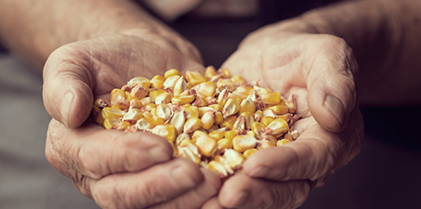

Aptar beauty + home is driving sustainability by launching closures made of Post Consumer Resin (PCR) and the first dispenser pump made of bio-based material.
Sustainability is a key driver in the market today and sustainability efforts are now well-integrated into the corporate fabric of a growing number of large and midsized companies.
A particular focus is being given to the “Circular economy,” where materials can be regenerated and constantly flow around a ‘closed loop’ system, rather than being used once and then discarded.
The benefits of the circular economy approach are clear for business and the environment – a more effective use of resources means lower costs and less waste, better risk management of raw materials, and improved approaches to the supply chain. This translates to new sources of value for customers and consumers.
To support this ongoing effort to transform the economy into a more sustainable one, Aptar has launched a Sustainable Materials Task Force and developed a strategy that addresses customer, consumer and regulatory expectations for sustainable product offerings. The fundamental strategies are to create a reliable network of innovative sustainable material suppliers having technical and supply capabilities, and to create a robust process with our suppliers to validate Sustainable Materials, enrich our database and offer ready-to-use solutions for our business.
Over the past few years, Aptar has evaluated and tested a significant number of sustainable resins within its plants.
It is continuously searching for suppliers and sustainable materials that can be used to replace its standard fossil-based resins, and is currently exploring Post Consumer Resins (PCR), Post Industrial Resins (PIR) and Bio-based materials.
- Post Consumer Resin (PCR) is a plastic that has been re-processed to be reused in new manufacturing. It consists of blended or recycled resins that would have otherwise become urban waste.
- Post Industrial Resin (PIR) is plastic waste recovered from industrial processes, and consists of blended or recycled resins from industrial waste.
- Bio-based material is made from organic feedstock, carbohydrate-rich plants such as corn or sugar cane.
The first tangible outcome from Aptar's strong commitment to sustainable materials is the recent launch of Aptar’s tube top, snap top and disc top closures made of PCR resin. Approved by the Food and Drug Administration (FDA), this PCR Polypropylene has been blended with virgin Polypropylene resin (50/50).
Furthermore, among all tests that are being conducted on PCR, PIR and Bio-based materials, it is key to mention the recent qualification of the GS and GSA dispensers with actuator, closure and dip tube components made of bio-based material. The GS and GSA dispensers were the first dispensing system on the worldwide market to accomplish an LCA (Life cycle assessment) and to achieve an EPD (Environmental Product Declaration) and now, with the recent certification of bio-based material, it aims to strongly reduce their environmental impact.
Replacing the standard fossil-based resins with sustainable resins as an area of focus within the Innovation excellence organization with the aim to further increase the offer of sustainable dispensing solutions for the market.















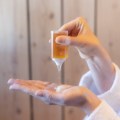


.jpg)
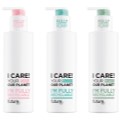

.jpg)
.jpg)

.jpg)

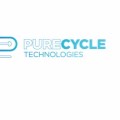

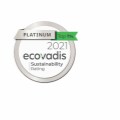











.jpg)

.jpg)

.jpg)
